How Education Transforms Lives: Inspiring Stories of Change and Growth
Education holds the power to reshape destinies, break barriers, and ignite hope in ways few other forces can. Throughout history and in modern times, countless individuals have seen their lives transformed through the pursuit of knowledge. From empowering communities to fostering personal development, education is a catalyst for change. Below, we explore compelling stories that underscore how education impacts lives, and why it remains a critical tool for building a brighter future.
Education as a Gateway to Opportunities
Access to education often serves as a stepping stone to better opportunities. For millions of individuals worldwide, learning opens doors that were once shut by poverty, discrimination, or systemic inequality. Consider the story of Malala Yousafzai, a Pakistani activist who defied the odds to fight for girls’ education. Her journey not only exemplifies the transformative power of education but also highlights its role in challenging societal norms.
Education equips individuals with the skills needed to enter diverse fields, whether through academic study or vocational training. From learning basic literacy and numeracy to mastering specialized technical skills, education creates pathways to stable jobs, improved living standards, and economic independence.
Empowering Women Through Education
Women and girls often face significant obstacles to accessing education, yet they benefit immensely when these barriers are overcome. Education empowers women to make informed decisions about their lives, such as family planning, career choices, and health management. A UNESCO study found that every additional year of schooling for girls reduces child mortality rates and improves community welfare.
Take the example of Mariam, a young woman from rural Kenya who pursued her dream of becoming a doctor despite societal pressures. With the support of scholarships and community initiatives, she completed her medical degree and now serves as a role model, inspiring other girls in her village to pursue their ambitions.
Breaking the Cycle of Poverty
Education has the profound ability to break intergenerational cycles of poverty. Families living in poverty often view education as the key to a better life for their children. Programs such as free primary education and school meal initiatives ensure that children from disadvantaged backgrounds can attend school.
In India, the story of Anand Kumar, the founder of the “Super 30” program, showcases this transformative potential. Anand identified underprivileged yet talented students and provided them with free coaching to excel in competitive exams. Many of his students have gone on to secure prestigious positions, changing not only their lives but also those of their families.
Fostering Social Change and Equality
Education is a powerful tool for promoting social change and reducing inequality. By exposing individuals to diverse perspectives, it fosters empathy and understanding. Moreover, education helps dismantle discriminatory practices, enabling marginalized groups to advocate for their rights.
One remarkable example is that of Nelson Mandela, who famously stated, “Education is the most powerful weapon which you can use to change the world.” Mandela’s emphasis on education during and after his presidency in South Africa played a pivotal role in addressing racial inequalities and rebuilding a nation divided by apartheid.
Cultivating Innovation and Creativity
The modern world thrives on innovation, and education is its backbone. Schools, universities, and research institutions serve as breeding grounds for creativity and problem-solving. By fostering critical thinking skills, education prepares individuals to tackle complex global challenges.
For instance, Malala Fund’s initiatives have led to innovative solutions for increasing access to education in remote regions. Additionally, global icons like Elon Musk and Sundar Pichai credit their educational experiences with shaping their careers and enabling them to make significant contributions to technology and society.
Education and Mental Well-being
Beyond academic and professional benefits, education also positively impacts mental health and overall well-being. Engaging in lifelong learning fosters a sense of purpose and fulfillment, while the social aspects of education help build relationships and a sense of community.
Programs designed to teach emotional intelligence and resilience in schools further enhance mental health outcomes. The story of Sarah, a teenager in the U.S. who overcame severe anxiety through her school’s mindfulness curriculum, highlights the intersection of education and mental well-being.
Global Initiatives Driving Educational Transformation
Various global organizations and initiatives are working tirelessly to ensure education reaches those who need it most. UNESCO, UNICEF, and local NGOs collaborate to create inclusive educational programs, emphasizing equity and quality.
For example, the “Teach for All” network partners with countries worldwide to address educational inequities. By recruiting and training educators to work in underserved communities, they’re creating ripples of change that extend far beyond individual classrooms.
Conclusion: Education as a Universal Right
Education is more than a privilege; it is a universal right and a transformative force. The stories of individuals who overcame immense odds to pursue learning demonstrate its unparalleled power to inspire, uplift, and empower. Whether through breaking the chains of poverty, fostering equality, or driving innovation, education remains humanity’s most potent tool for shaping a better future.
By investing in education, we invest in people, communities, and the world at large. The responsibility lies with governments, organizations, and individuals to ensure that education is accessible, equitable, and empowering for all.


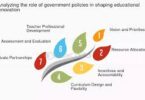
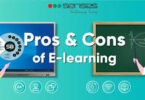
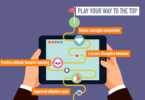
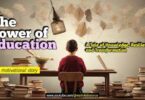


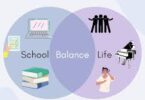
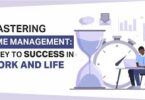
Leave a Comment